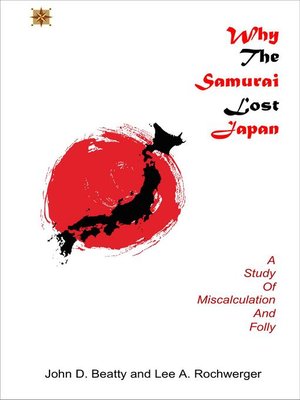
Sign up to save your library
With an OverDrive account, you can save your favorite libraries for at-a-glance information about availability. Find out more about OverDrive accounts.
Find this title in Libby, the library reading app by OverDrive.



Search for a digital library with this title
Title found at these libraries:
| Library Name | Distance |
|---|---|
| Loading... |
Beginning in the late 19th century, Imperial Japan embarked on a program of aggressive military overseas adventures in Asia and the Pacific. From 1904 to 1941, Japan's desire for resource independence had driven them to conquer Korea, Manchuria, large parts of China, and French Indochina, and to occupy large swaths of Pacific islands. These conquests provided tremendous resources, but still, they needed more.
All these conquests were driven by the Samurai: the ancient warriors of Japan, answerable only to the needs for resources, an ill-defined bushido code, and their Emperor.
They led Japan into a horrible war stretching across a third of the Earth's surface, knowing full well they could not defeat their enemies. Their plan was the uncertain hope that the West would falter and offer an olive branch, accepting Japanese hegemony in the Pacific and East Asia and granting them the resources they needed.
This was a miscalculation driven by a folly of epic proportions. Four months of early and easy victories in 1941 convinced them of their invincibility. They refused to believe that their fighting spirit could be defeated by superior firepower and the sheer numbers of opponents. And the samurai had no Plan B.







